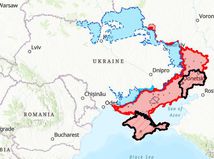1. If you have enough money so that food and utility payments are not a worry to you, lower your consumption of energy, water, and all resources as much as you possibly can. Each time you do less or use less, you will probably find your life is still comfortable, and you may have the unexpected consequence of feeling a closer kinship with the natural world.
2. Find and join an organization or two that works for change in ways that match your time, finances, and interest. I read an article a couple of years ago that outlined more and less radical groups, ones that you can just financially support, ones that work with policymakers, ones that work with prevention or remediation, etc. It was almost like a personality test using advocacy groups. It’s important to be part of a group that can effectively magnify the volume of concern being expressed, as well as deal with setbacks together, rather than having individuals speak and lament on their own.
3. Get as close to zero waste as you can, particularly when it comes to plastics.
4. Grow as much of your own food as you possibly can. The industrial- scale agricultural system isn’t just harmful, it’s vulnerable. For what you can’t grow, connect with local farmers to supply. Community supported agriculture, or CSAs, are particularly good to join since they allow you to share the risk of loss with your farmer. Plus, eating in season what is locally available is healthier for you and the planet.
5. Be creative. New systems and new ways of being are needed. As the old systems are failing, we have a chance to create something new that supports the thriving of the natural world and all inhabitants. As we “buy” less entertainment, let’s do more singing, dancing, and making the things we need.
6.Join a death conversation group. Our dying, when it’s our time, could be recognized as one of the few opportunities humans have to give back to Earth and even our communities for the endless bounty we’ve received. Participating in the full circle of living and dying offers a deepening experience to us if we can be well-supported in learning and transforming our fear into curiosity and gratitude.<
7. Make more time for being outside interacting with the natural world. This could be gardening, exploring, looking closely at your surroundings, star gazing, or any number of awe-inspiring activities. It will be essential to have that restorative time as the world becomes more unpredictable.
8. Advocate for protection of all federal lands, particularly national forests and parks, from any energy drilling or mining. Native lands should have protections as well. This action would be a WIN, WIN, WIN for less dirty energy, more habitat protection, and greater sense of shared national treasure.
9. Live more communally. Depending on where you are, this could mean really getting to know everyone in your apartment building or on your block. Share meals. Share tools. Help each other with tasks, and not just during an emergency. It could mean trying cohousing or an intentional community organized around principles you care most about. Frequent your local library. Get to know people you don’t think you have much in common with!
10. Think about what issue(s) you would be willing to risk arrest for. What would motivate you to do something more serious, such as a hunger strike? It’s important that each person know where they would draw the line on what they will and won’t tolerate, and not let that line shift because there are so many things going crazy.
11. Be kind. Be kind to yourself and to those around you. Most people are suffering from overload and stress. Get enough sleep. This will be a transition that could lead to a world that is increasingly more just and less desecrated, but we will be doing hard things that we’ve never done. Surprising allies may appear. We may or may not see the fruit of our work. But we’re here now, capable of doing our part, and the world and her inhabitants are still full of beauty and wonder, and there’s no time to waste.




















Celá debata | RSS tejto debaty